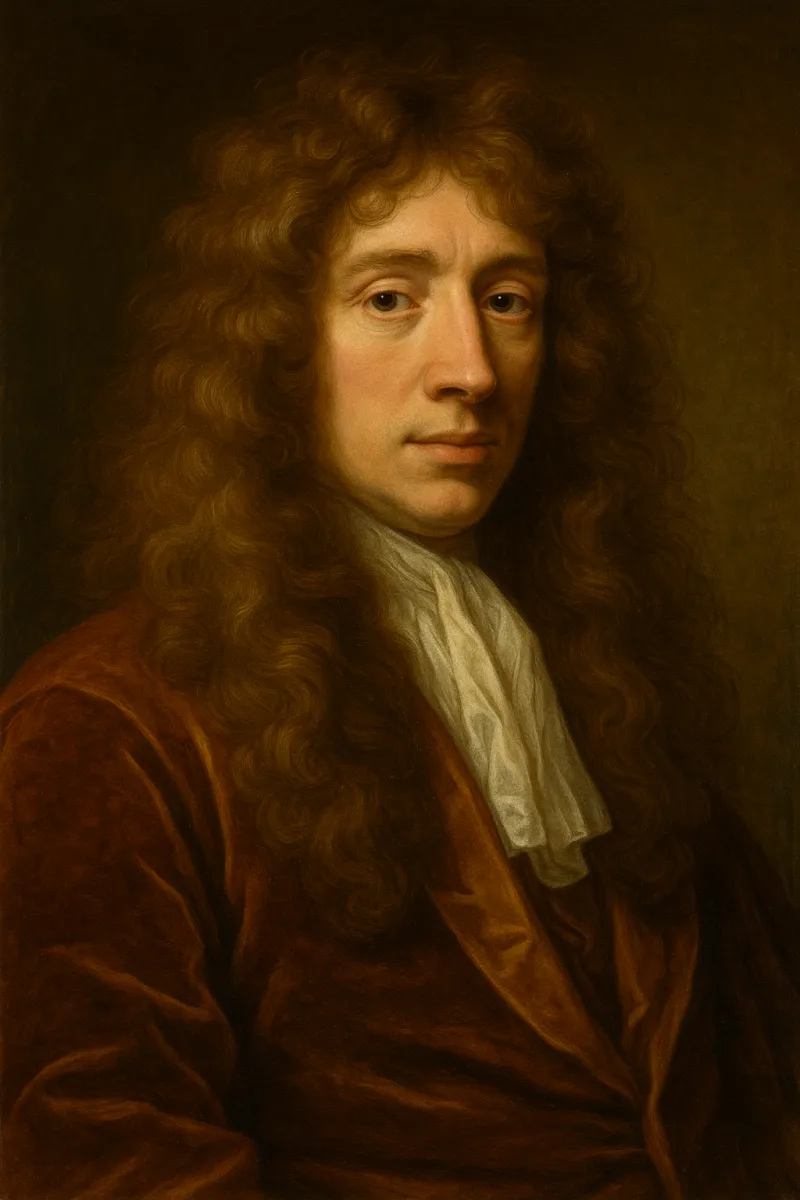Short Summary
Christiaan Huygens was a prominent Dutch mathematician, physicist, and astronomer of the 17th century. He is renowned for his groundbreaking work in the fields of optics and mechanics, including the invention of the pendulum clock, which significantly improved timekeeping accuracy. Huygens is also famous for his wave theory of light and his discovery of Saturn's rings. His contributions have had a lasting impact on science, making him a central figure in the scientific revolution.
Early Life & Education
Born on April 14, 1629, in The Hague, Netherlands, Christiaan Huygens was the second son of Constantijn Huygens, a prominent diplomat and poet, and Suzanna van Baerle. He grew up in an intellectually stimulating environment, with his father's connections enabling interactions with leading thinkers of the time. Huygens received his early education at home before attending the University of Leiden at age 16. He studied mathematics and law, influenced by leading intellectuals such as René Descartes. His education continued at the newly founded Orange College in Breda, where he further honed his mathematical and scientific skills.
Career Highlights
Christiaan Huygens's career was marked by significant contributions to science and mathematics. His early work in optics led to improvements in telescope design, allowing him to discover Saturn's largest moon, Titan, in 1655. In 1656, he invented the pendulum clock, revolutionizing timekeeping accuracy. Huygens also published works on the mechanics of collision and centrifugal force, laying foundations for classical mechanics. His wave theory of light, expounded in his 1690 book "Traité de la Lumière," challenged the prevailing particle theory and influenced future scientific thought.
Major Achievements
- Discovered Saturn's moon Titan in 1655, marking a breakthrough in astronomy.
- Invented the pendulum clock in 1656, greatly improving timekeeping precision.
- Formulated the wave theory of light, influencing future research in optics.
- Developed theories on the mechanics of motion and collision, fundamental to classical mechanics.
- Improved telescope design, enhancing astronomical observations.
Famous Quotes
- "The world is my country, science my religion."
- "I do not mind that I am condemned to an eternal rest, if it is the same with you."
Interesting Facts
- Christiaan Huygens was a contemporary of Isaac Newton and corresponded with him on scientific matters.
- He was one of the first scientists to propose the existence of extra-terrestrial life.
- Huygens's work on pendulum clocks laid the groundwork for the modern method of measuring time.
- He was elected a Fellow of the Royal Society of London in 1663.
- His father, Constantijn Huygens, was a notable poet and diplomat who served as an advisor to the House of Orange.
Legacy / Influence
Christiaan Huygens's contributions to science and mathematics have had a profound and lasting impact. His wave theory of light influenced future physicists and laid the groundwork for the development of wave optics. The invention of the pendulum clock revolutionized timekeeping, affecting navigation and daily life. His discoveries in astronomy and improvements in telescope design expanded human understanding of the cosmos. Huygens's work continues to be celebrated for its innovation and influence on subsequent scientific advancements.
FAQ
Q: Why is Christiaan Huygens famous?
A: He is famous for his discoveries in astronomy, invention of the pendulum clock, and wave theory of light.
Q: What did Christiaan Huygens discover about Saturn?
A: He discovered Saturn's largest moon, Titan, and identified the structure of Saturn's rings.
Q: How did Huygens contribute to timekeeping?
A: He invented the pendulum clock, which significantly improved the accuracy of time measurement.
Q: Was Christiaan Huygens involved with any scientific societies?
A: Yes, he was elected a Fellow of the Royal Society of London in 1663.










